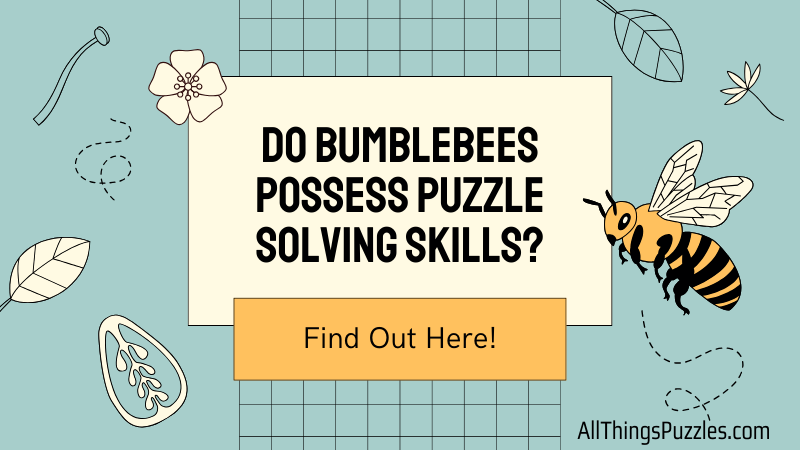In the intricate tapestry of nature, bumblebees emerge as unexpected problem-solvers, unraveling the mysteries of their environment with remarkable finesse. Through a series of ingenious experiments, scientists have uncovered the hidden depths of these tiny creatures’ cognitive abilities, revealing a world where bumblebees possess puzzle solving skills that rival those of larger-brained animals. Join us as we delve into the fascinating realm of bumblebee intelligence and witness the awe-inspiring feats of these industrious insects.
Bumblebees, often buzzing around garden flowers in search of nectar, are more than just pollinators; they are problem solvers too. Recent research has uncovered an intriguing facet of bumblebee behavior: their ability to learn how to solve complex puzzles from one another. This finding enriches our understanding of insect intelligence and social learning, suggesting that bumblebee culture is more sophisticated than previously believed. It reveals that these insects can not only tackle challenging tasks individually but can also improve their success rates by learning through observation.
Studies have shown that when faced with puzzles that provide access to food rewards, bumblebees can observe and learn from their peers to overcome these obstacles. This collective effort not only displays the intricate social learning mechanisms within bee communities but also poses exciting questions about the cognitive abilities of insects. With each new study unveiled by institutions, such as Queen Mary University of London or Anglia Ruskin University, adds to this tapestry of knowledge.
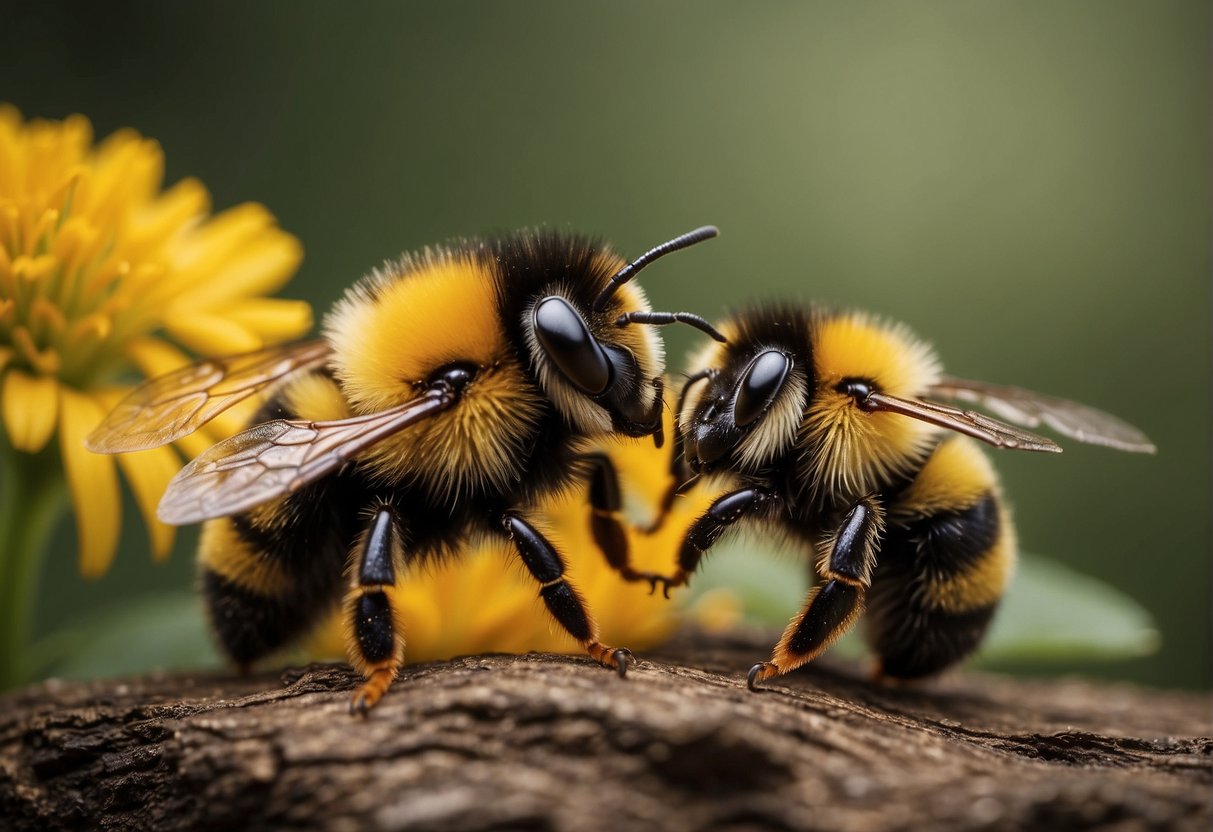
Key Takeaways:
- Bumblebees display the capacity to learn from each other, demonstrating complex problem-solving behaviors.
- The success in acquiring new behaviors through observation rather than solo endeavors highlights the intricate social dynamics of bumblebee colonies.
- Research into bumblebee cognitive abilities continues to reshape the traditional view of intelligence across species, suggesting a deeper understanding of collective intelligence.
The Science of Bumblebee Learning
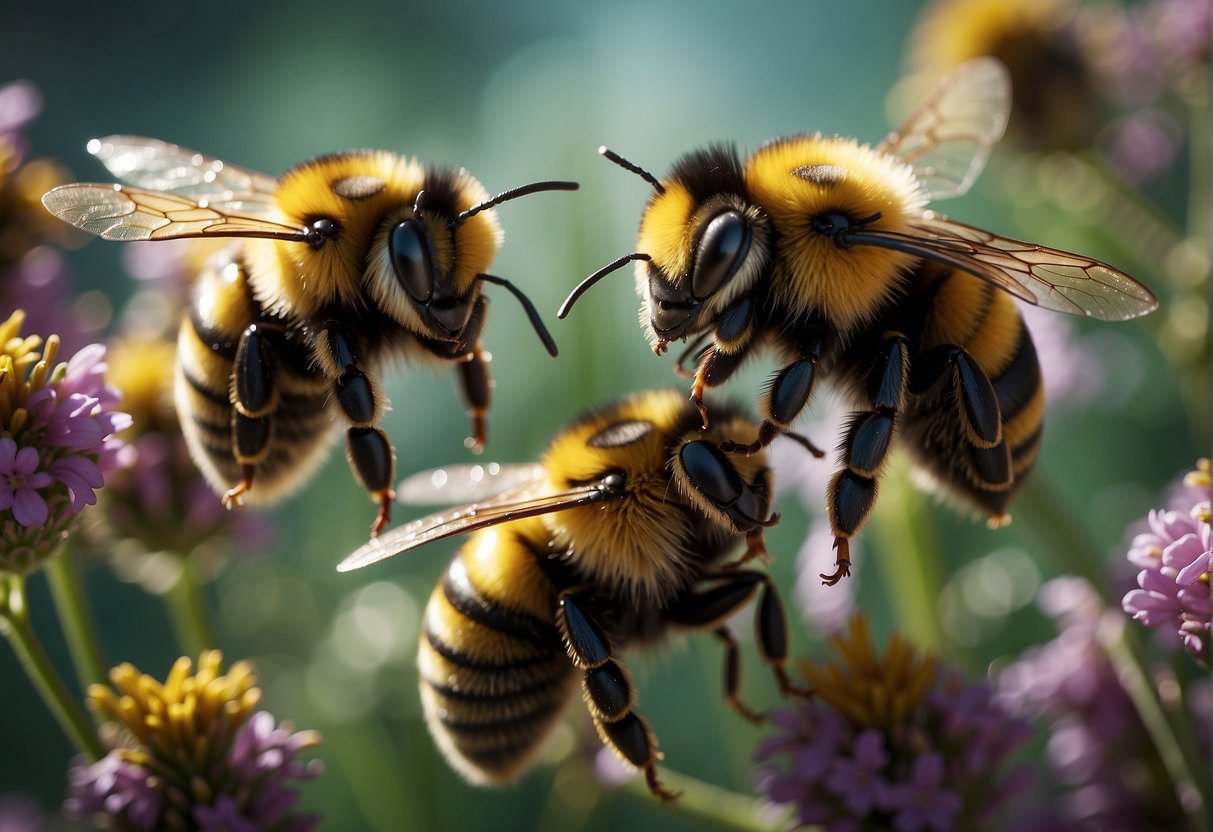
Bumblebee intelligence extends beyond mere instinct, as these insects exhibit capabilities to learn and pass on knowledge, as recent studies at Queen Mary University of London have demonstrated.
Understanding Bumblebee Intelligence
When thinking of bumblebees those thoughts should go beyond their role in pollination; they possess notable cognitive skills. Professor Lars Chittka, a prominent researcher in the field, has shed light on how individual bees apply trial and error to learn new skills, indicating a type of intelligence once thought reserved for larger-brained animals.
Research Findings at Queen Mary University of London
At Queen Mary University of London, researchers discovered trained bees can effectively teach other untrained bees. This shows that bumblebees can share knowledge and skills among themselves through direct social interaction, which is an important part of how they learn.
The Dynamics of Social Learning in Bumblebees
Social learning in bumblebees involves demonstrator bees demonstrating how to perform tasks, which other bees then imitate. Each new generation has the potential to improve their nests or farming practices based on what they’ve learned from previous generations.
Comparative Analysis with Other Species
Studies comparing different animals have revealed that bumblebees, similar to chimpanzees and other social insects, engage in a form of tradition and culture, just on a smaller level. The way bumblebees pass on knowledge resembles how chimps learn, indicating that there are common ways animals across species learn socially.
Implications for Understanding Insect Cultures
Studying how bumblebees learn gives us important insights about the cultures of more complex insects culture, like aphid- and fungus-farming ants.. Understanding insect cultures expands when we realize that their social structures not only helps individual learning but also enable passing on traditions and building up shared knowledge over time.
Solving Complex Puzzles: Methodology and Observations
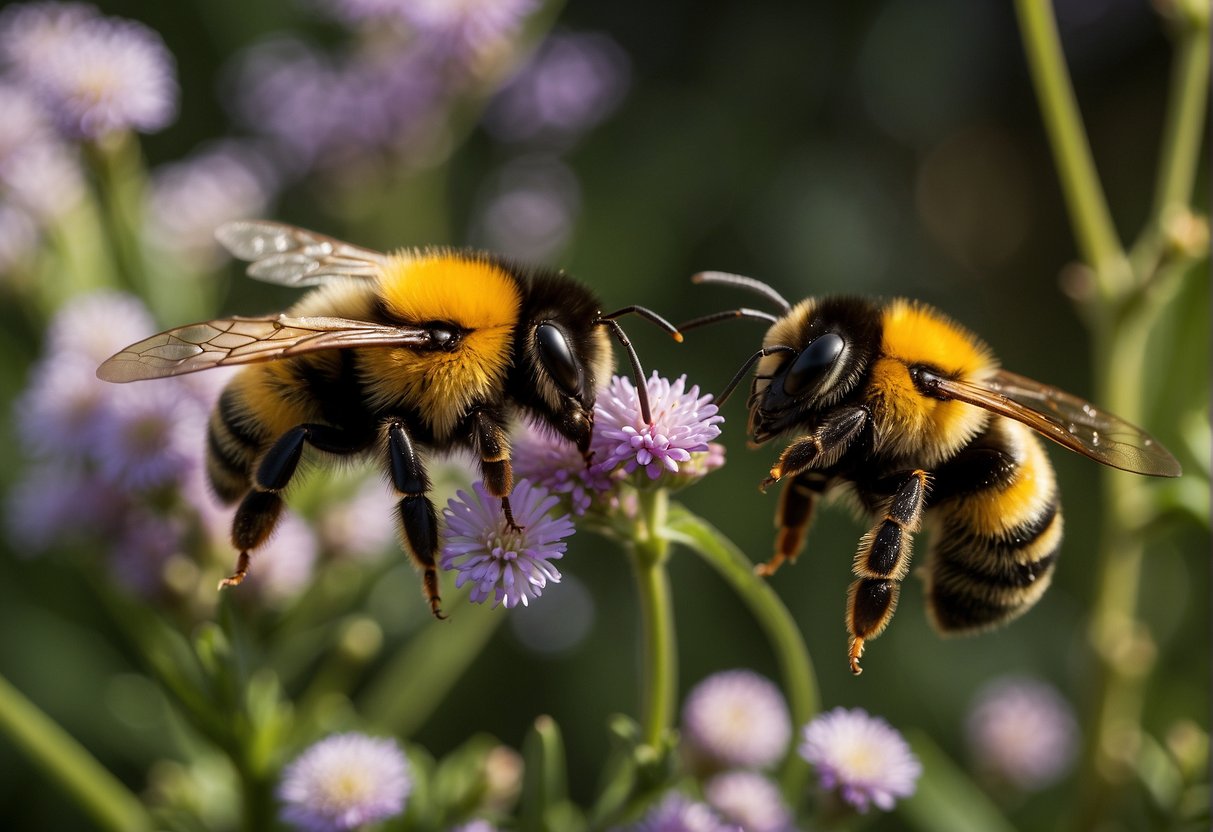
Scientific inquiries, such as those conducted at Queen Mary University of London, often involve intricate experimental designs where bumblebees are required to navigate puzzles for a sweet sugar solution reward. These studies serve as the first step in understanding bumblebee intelligence.
The Two-Step Puzzle Box Experiment
Researchers have tested the problem-solving abilities of bumblebees using a two-step puzzle box task. This involved an obstacle: a puzzle box with a rotating lid that required the bees to first move a cap and then rotate the lid to access a sugar reward. Each trial provided insightful data on the cognitive processes involved in learning and teaching among these social insects.
Analyzing Behavioral Patterns and Problem-Solving
Observations indicated a clear pattern in behavioral responses to the puzzle box task. Bumblebees initially approached the task using trial and error. However, when a peer successfully completed the puzzle, others observed and replicated the behavior, leading to a rapid acquisition of the solution technique.
The Role of Peer Influence and Demonstration
The study’s critical finding is the role of peer influence in learning complex tasks. Demonstrations by experienced peers significantly increased the success rate among other bumblebees. It’s a compelling example of social learning where observing each other leads to a collective improvement in problem-solving.
Cross-References with Studies in Human Learning
It’s interesting that the way bumblebees learn has similarities to how humans learn. The idea of collective intelligence and cognition seen in bees during experiments resonates with what we’ve discovered in studies of human behavior, hinting at a common aspect of learning through social interactions.
Implications and Future Directions of Research On The Question Of Do Bumblebees Possess Puzzle Solving Skills?
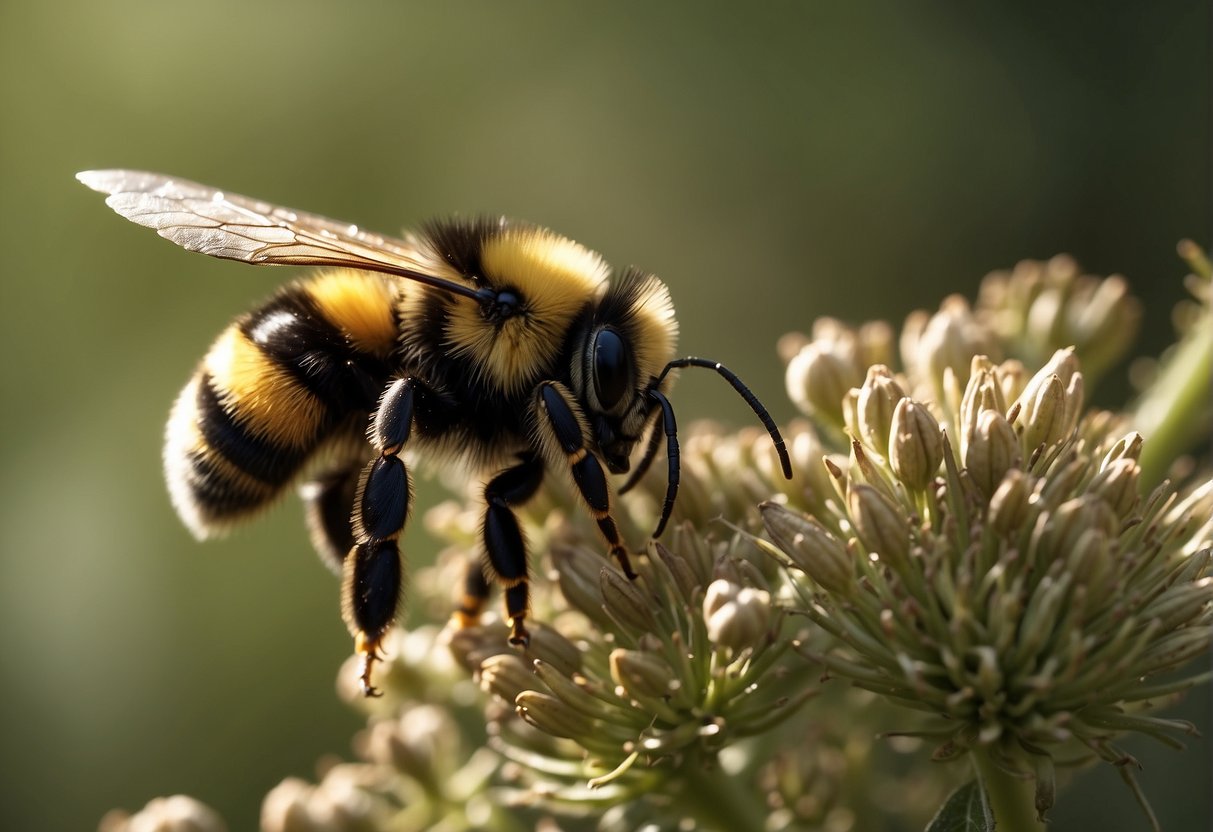
The recent discovery that bumblebees can learn a new skill from one another to solve puzzles provides a transformative view on collective intelligence in social insects. This insight not only reshapes our understanding of insect behavior but opens new avenues in ecological research and practical applications in agriculture.
Potential Applications in Ecology and Agriculture
Collective Intelligence: Studying how bumblebees learn together could help us create stronger ecological systems. Using what we know about bumblebee farming practices, we might improve how we pollinate crops, leading to better harvests and benefiting agriculture as a whole.
Nesting Architectures: Understanding how bumblebees build their nests and solve problems can help us create habitats that support their conservation efforts and their important role in pollinating various plants. This insight could lead to the development of better habitats tailored to their needs.
Extending the Study to Other Social Insect Species
Aphid- and Fungus-Farming Ants: Studies similar to those conducted on bumblebees could be expanded to other social insects such as aphid- and fungus-farming ants. By doing this, we can gain a deeper understanding of how learning behaviors impact ecosystems and evolution across different species.
Social Learning Capabilities: Heightened awareness could inspire further research into the social learning abilities of various insects, helping us uncover potential forms of intelligence that have been overlooked until now.
Contribution to the Field of Sensory and Behavioral Ecology
Nature of Interaction: This research enriches the field of sensory and behavioral ecology by showing that even simple aspects of nature can display complex behaviors. It suggests that the social interactions among insect species are more advanced than we previously thought.
Behavior Studies: Exploring behavior studies helps unravel the complexities of insect societies, expanding theoretical understanding and practical applications. It promotes a greater sense of responsibility towards the natural world and the diverse life it supports.
Additional Information and Context
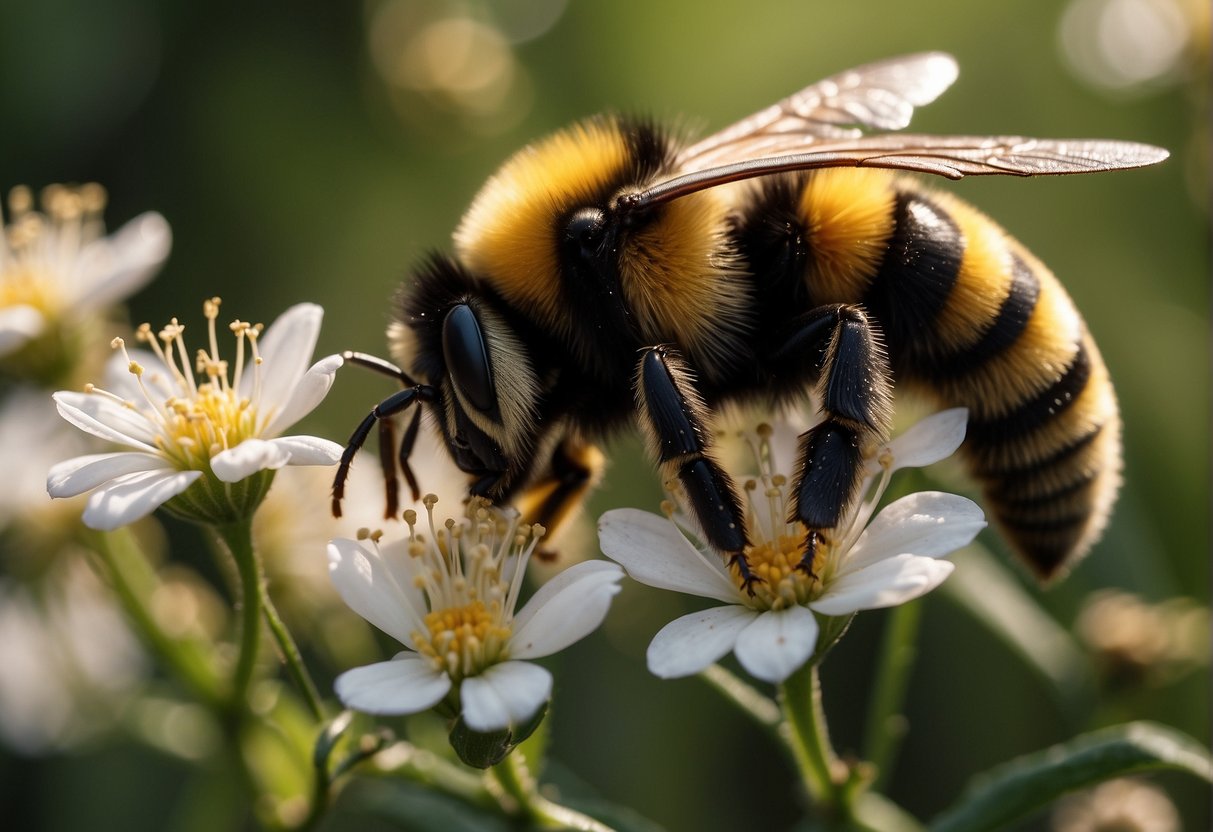
Discovering how bumblebees transmit knowledge reveals much about insect cognition and social learning. This section brings to light instances of observed learning in insects, delves into the research findings, and compares their tool use with primates.
Historical Instances of Insect Learning Observations
Insects, particularly bees, have shown evidence of learning behavior in various studies. Traditionally, insect intelligence was underestimated, but observations have led to a different understanding. For instance, honeybees are known for their waggle dance, which communicates the location of food. In comparison, string-pulling for a food reward has been documented in the behavior of bees, suggesting a level of problem-solving ability.
Insights from the Researchers and Publication Details
Queen Mary University of London scientists, including the lead author, have contributed significantly to research on bumblebees, especially concerning social learning. Their work, published in the journal PLOS Biology, can learn complex puzzles like pulling a red tab to reach a sugar solution by not only observing their peers but also as a preferred learned technique.
Examining Tool Usage Among Insects and Primates
The tool usage among insects, like bumblebees using tabs to receive a temporary reward draws parallels with primates, such as chimpanzees, who use sticks for termite fishing. Both exhibit advanced problem-solving skills, though the tools and contexts differ. Bumblebees manipulating a blue tab during training sessions show learning behaviors once believed to be exclusive to primates, suggesting a more complex level of insect intelligence.
FAQs
What research showcases Bumblebees’ puzzle-solving capabilities?
Recent investigations have highlighted the ability of bumblebees, specifically Bombus terrestris, to tackle complex tasks. Through social interaction, bumblebees have been observed demonstrating a new behavior to their peers, suggesting a form of social learning not previously attributed to insects.
Findings: Involvement of demonstrator bees
Importance: Shifts in traditional view of insect intelligence
What is the significance of Bumblebees’ puzzle-solving for insect cognition?
The puzzle-solving skills of bumblebees prompt reconsideration of cognitive capacities in the animal kingdom. As these insects show they can learn and pass on new skills, it raises an fascinating possibility of cumulative culture similar to what’s observed in certain vertebrates.
Implications: Potential for redefining animal intelligence
Key Contribution: Inquiry into cumulative culture in insects
What puzzles are Bumblebees known to have solve?
Researchers have constructed complicated puzzle box tasks where bumblebees must execute a series of actions to receive a sugar reward, exhibiting complex behavior akin to that of fungus-farming ants or vervet monkeys.
Examples: Two-step box tasks
Success: Demonstrated adaptability in accessing temporary rewards
What methods for problem-solving in unfamiliar situations are used by Bumblebees?
When faced with novel challenges, bumblebees exhibit impressive adaptability. Individual bees use trial-and-error approaches and may benefit from the demonstrations of more experienced peers, leading to the gradual accumulation of knowledge within a colony.
Approaches: Individual learning, social observation
Instances: Untrained bees gaining skills through observation
What is the comparative problem-solving abilities of bumblebees and other insects?
Compared to other insects, bumblebees, especially the species B. terrestris, stand out as clever innovators. Recent studies show they fare well against others in their ability to solve complex tasks, positioning them as having some of the most remarkable accomplishments of the social insects.
Bumblebees vs. Others: Flexible, able to learn from social cues
Context: Behavioral ecology and cognitive ethology comparisons
Final Thoughts
In the realm of animal cognition, bumblebees shine as surprising examples of nature’s wonders. Their ability to tackle complex tasks with precision challenges our notions of intelligence. Like other animals, bumblebees might possess intelligence-like abilities. Their clever foraging and problem-solving skills are just the start. Each new study from institutions such as Queen Mary University of London or Anglia Ruskin University adds to our understanding.
Experiments often begin with one bumblebee solving a puzzle for a sugar reward. But recent findings show that individual bees can become teachers, passing on new behaviors. It’s fascinating to think about how these “tutor” bees might shape the skills and traditions of their communities over time. When we delve into their social interactions, we might uncover layers of collective culture, similar to what we see in human societies. This provides strong evidence that intelligence isn’t limited to creatures with big brains.
It’s an exciting journey we’re on, from understanding how knowledge gradually accumulates in species like bumblebees to possibly discovering complex cultures in other parts of the animal kingdom. Research at institutions like Anglia Ruskin University opens up exciting possibilities that challenge our long-held beliefs. So, next time you observe the nesting architectures of bees or their efficiency in agriculture, consider how their success might stem from learning through social observation.
As we keep exploring the mysteries of nature, let’s appreciate the brilliance of bumblebees and the valuable lessons they teach us about adaptability, problem-solving, and the endless potential of life in all its forms.
